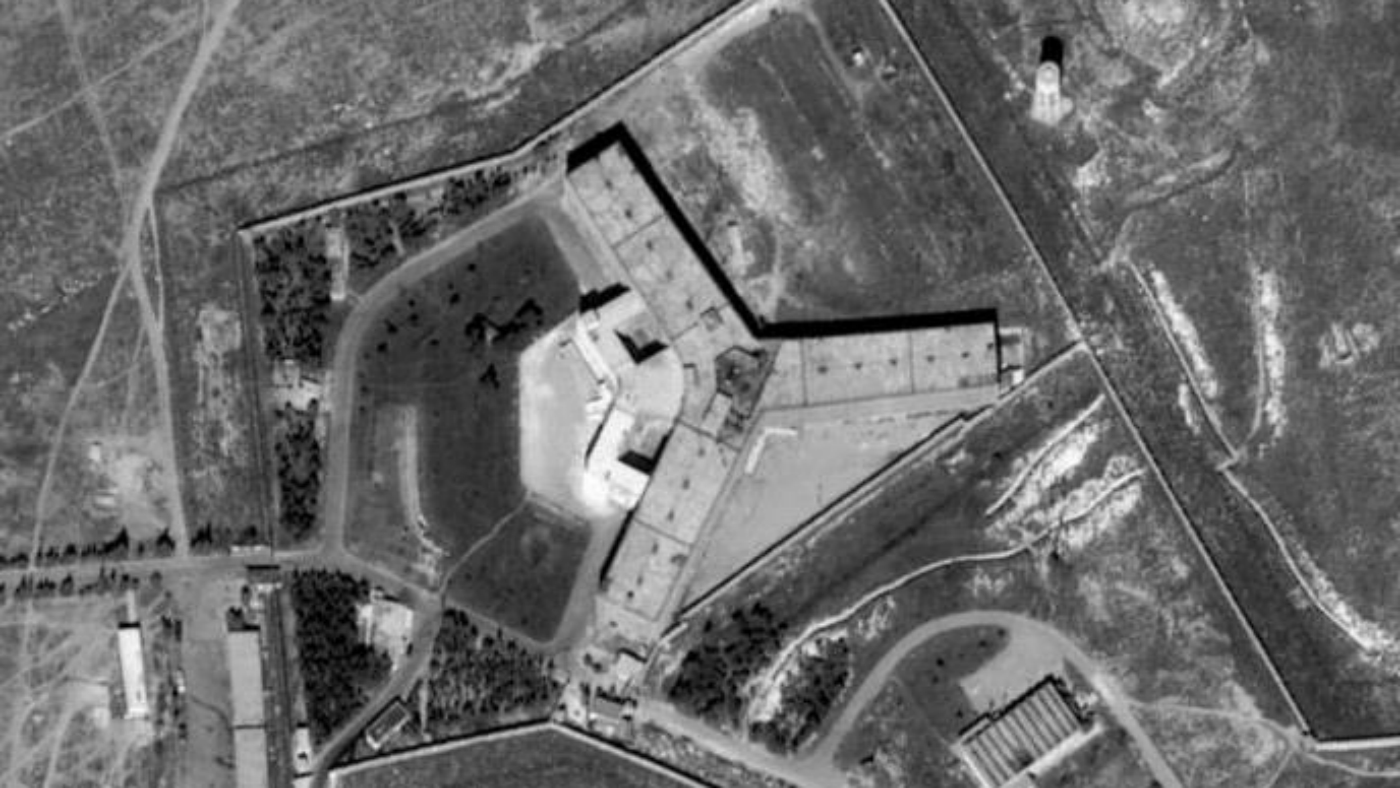Syria: Thousands executed in midnight mass hangings
Amnesty International dubs regime's prison a 'human slaughterhouse'

A free daily email with the biggest news stories of the day – and the best features from TheWeek.com
You are now subscribed
Your newsletter sign-up was successful
Amnesty International says it has uncovered evidence of mass hangings, torture and starvation at a government-run detention facility in Syria.
The human rights organisation has dubbed the Saydnaya Military Prison complex, 18 miles outside Damascus, a "human slaughterhouse" where the regime has carried out an "extermination" of political opponents amounting to "crimes against humanity".
Contrary to the impression given by the prison's name, the victims are "overwhelmingly" civilians rather than rebel fighters and include political dissidents, aid workers, students and journalists.
The Week
Escape your echo chamber. Get the facts behind the news, plus analysis from multiple perspectives.

Sign up for The Week's Free Newsletters
From our morning news briefing to a weekly Good News Newsletter, get the best of The Week delivered directly to your inbox.
From our morning news briefing to a weekly Good News Newsletter, get the best of The Week delivered directly to your inbox.
Syrian President Bashar al-Assad's secretive regime makes verifying accusations of human rights violations a challenge for humanitarian groups, but Amnesty workers were able to interview dozens of former Saydnaya detainees and their relatives, as well as guards, who have since fled Syria.
In their report into the prison, Amnesty describes torture, starvation and mass hangings carried out in the middle of the night after "trials" typically lasting less than three minutes.
"One former military officer said he could hear 'gurgling' as people were hanged in an execution room below," Al Jazeera reports.
Based on witness testimony, the organisation estimates that between 5,000 and 13,000 people were extrajudicially executed at Saydnaya between September 2011 and December 2015, and "there is no reason to believe that executions have stopped".
A free daily email with the biggest news stories of the day – and the best features from TheWeek.com
Reports of repression and torture by the Syrian government date back to the 1980s, but since the country's descent into civil war in 2011, the regime's violations against detainees "have increased drastically in magnitude and severity", Amnesty says.
Statistics compiled by the Human Rights Data Analysis Group indicate that between March 2011 and December 2015, at least 17,723 people were killed in Syrian government custody.
Lynn Maalouf, deputy director for research at Amnesty's Beirut office, said the report exposes a "hidden, monstrous campaign, authorised at the highest levels of the Syrian government".
She added: "The cold-blooded killing of thousands of defenceless prisoners, along with the carefully crafted and systematic programmes of psychological and physical torture that are in place inside Saydnaya prison cannot be allowed to continue."
-
 Local elections 2026: where are they and who is expected to win?
Local elections 2026: where are they and who is expected to win?The Explainer Labour is braced for heavy losses and U-turn on postponing some council elections hasn’t helped the party’s prospects
-
 6 of the world’s most accessible destinations
6 of the world’s most accessible destinationsThe Week Recommends Experience all of Berlin, Singapore and Sydney
-
 How the FCC’s ‘equal time’ rule works
How the FCC’s ‘equal time’ rule worksIn the Spotlight The law is at the heart of the Colbert-CBS conflict
-
 Epstein files topple law CEO, roil UK government
Epstein files topple law CEO, roil UK governmentSpeed Read Peter Mandelson, Britain’s former ambassador to the US, is caught up in the scandal
-
 Iran and US prepare to meet after skirmishes
Iran and US prepare to meet after skirmishesSpeed Read The incident comes amid heightened tensions in the Middle East
-
 Israel retrieves final hostage’s body from Gaza
Israel retrieves final hostage’s body from GazaSpeed Read The 24-year-old police officer was killed during the initial Hamas attack
-
 China’s Xi targets top general in growing purge
China’s Xi targets top general in growing purgeSpeed Read Zhang Youxia is being investigated over ‘grave violations’ of the law
-
 Panama and Canada are negotiating over a crucial copper mine
Panama and Canada are negotiating over a crucial copper mineIn the Spotlight Panama is set to make a final decision on the mine this summer
-
 Why Greenland’s natural resources are nearly impossible to mine
Why Greenland’s natural resources are nearly impossible to mineThe Explainer The country’s natural landscape makes the task extremely difficult
-
 Iran cuts internet as protests escalate
Iran cuts internet as protests escalateSpeed Reada Government buildings across the country have been set on fire
-
 US nabs ‘shadow’ tanker claimed by Russia
US nabs ‘shadow’ tanker claimed by RussiaSpeed Read The ship was one of two vessels seized by the US military